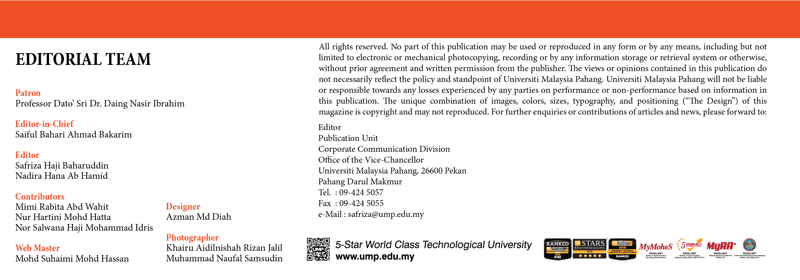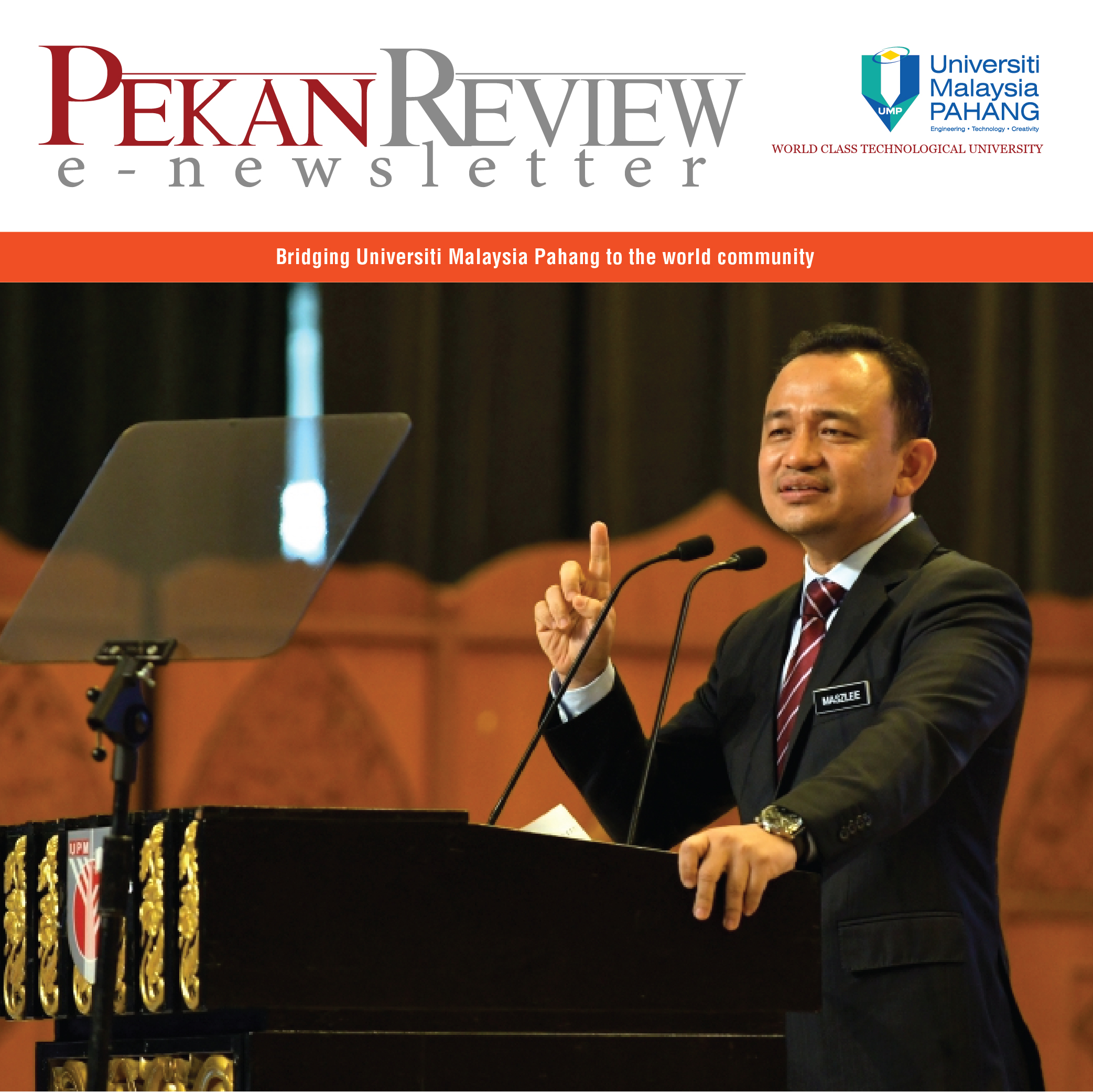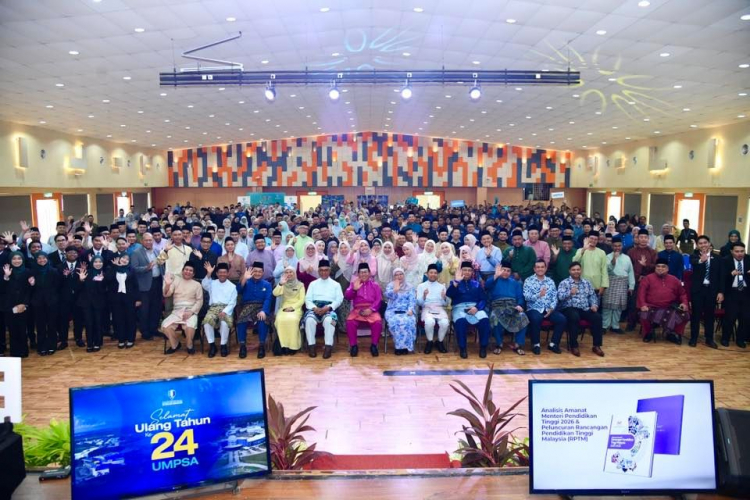 Education for All – Message from Minister of Education 2019Minister of Education, Dr. Maszlee Malik presented his vision on the education sector for the year 2019 in his speech themed, ‘Education for All’ that emphasised on four aspects – quality, autonomy, collaboration and internalisation. The speech was delivered before some 3,000 people at the main hall, Sultan Salahuddin Abdul Aziz Shah Arts and Culture Centre, Universiti Putra Malaysia (UPM), Serdang on January 14, 2019. Dr. Mazlee said the four aspects would be in line with the ministry’s objective of attaining high quality education, to be achieved through excellence, relevance and effectiveness. He added that in facing the challenges of fulfilling Vision 2020, the main key was education as it would help shape a society into a united force and this would be the starting point to meet the target. He also said the integrity of institutes of higher education would be restored and that the disabled and the poor were not denied of education. “In line with our vision, that is to restore the integrity of public universities and institutes of higher education through improved quality and greater emphasis on values as the core of education, we have outlined four specific directions - quality, autonomy, collaboration and internationalisation. “This tallies with our vision to attain high quality through excellence, relevance and effectiveness,” he said. He added that several changes would be carried out and suggested that academicians to be more visible by producing works that brought benefits to the people. “There was also a need to have more programmes of academic nature, the need for solutions to social problems and for more constructive efforts towards developing the nation,” he said. “Apart from this, ethics is another major aspect that needs to be given attention. Bad work ethics, plagiarisms and academic bullying must be stopped. Integrity cannot be compromised in tackling the problems of plagiarisms, bonceng gratis and the madness in producing inferior articles just for the sake of getting marks for publication. “Publications must reflect the intellectual dominance of the person and for the works be made a global reference. “In the meantime, the quality of research grants will be improved. Grants distributed must be in the form of knowledge transfer that promotes the translations of major works and must lead towards solving current and substantial problems of the society and country,” he said. On the promotion system for lecturers, Dr. Mazlee said the ministry was moving towards the using of artificial intelligence big data central system that would take in all the efforts and contributions and automatically determine their eligibility for a promotion. He also said by making the library into a huge and endless knowledge repository, communication system among all universities would be improved and access to outside publication would be enhanced. Dr. Mazlee said the aim was to have public universities and institutes of higher education turned into a global reference point. On the internationalisation agenda, Dr. Mazlee said it included efforts to increase the number of foreign students studying in the country, making Malaysia an international education hub as well as establishing more local university branches abroad by way of satellite university method. “The ministry encourages the setting up of foreign university branches in public universities such as the MJIIT project in UTM, wants more research collaborations between local universities and prominent universities and calls on academicians to be visiting professors at universities abroad,” he said. He also said in a move to further improve autonomy of universities, key performance index (KPI) of every faculty would be re-evaluated and KPI of one-size-fits-all nature would be abolished. The universities would be divided into clusters to create synergy and collaboration so they would not move individually, he added. On the empowerment of undergraduates, Dr. Mazlee said this would continue to be given attention and among the initial efforts to be implemented was to repeal the Section 15 (1) (c) that restrained the involvement of undergraduates in political activities in campus and this would be in line with the government’s plan to lower the voting age limit to 18. On promoting collaboration, Dr. Mazlee said the ecosystem to further fuel intellectualism must be increased and this could be done by way of the mentor-mentee relationship between senior professors and new lecturers so more schools of thoughts in their respective fields could be created. “In addition to this, universities can team up with other parties to set up endowment from the wakaf, zakat and alumni institutions. Take advantage of the tax incentives to initiate endowment through alumni. “It is the same with the internationalisation of universities as more drastic and comprehensive measures should be mobilised. Works of high quality must be produced and translated, the translation process must be actively carried out while rebranding and marketing must be carried out more effectively at the global level,” he said. As for polytechnics and community colleges, Dr. Mazlee said these institutions would not be marginalised especially in enhancing the quality and delivery of TVET programme in order to improve graduate employability. “We have embarked on steps to position MTUN and polytechnics so opportunities for polytechnic graduates to pursue higher education will be more secured. Polytechnics and community colleges have also significantly contributed to creating career paths for those from tahfiz schools where they undergo skills training programme,’’ he said. Dr. Mazlee also launched the KPM ICT Transformation Plan Book 2019-2023. Among the guests present at the event were Education Deputy Minister, Teo Nie Ching, Universiti Malaysia Pahang (UMP) Vice-Chancellor, Professor Dato’ Sri Dr. Daing Nasir Ibrahim and the management team. In a move to encourage reading among the public, the ministry and Dewan Bahasa dan Pustaka (DBP) would work together on a massive campaign towards creating a society that enjoyed reading and seeking knowledge, thus making Malaysia a Reading Nation by the year 2030. |
- 75 views



















